 Petzlover
Petzlover Both Munchkin and Ragamuffin are originated from United States. Both Munchkin and Ragamuffin are having almost same weight. Munchkin may live 3 years less than Ragamuffin. Both Munchkin and Ragamuffin has same litter size. Munchkin requires Low Maintenance. But Ragamuffin requires Moderate Maintenance
Both Munchkin and Ragamuffin are originated from United States. Both Munchkin and Ragamuffin are having almost same weight. Munchkin may live 3 years less than Ragamuffin. Both Munchkin and Ragamuffin has same litter size. Munchkin requires Low Maintenance. But Ragamuffin requires Moderate Maintenance
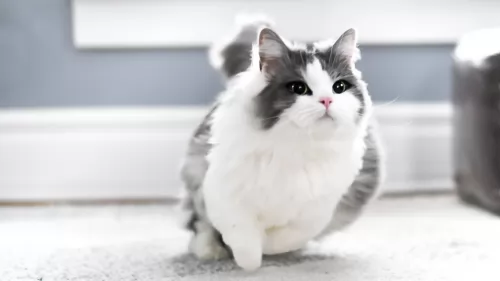 Information about the short-legged Munchkin cat has been around since the 1940s. A British veterinary report in 1944 noted these short-legged cats.
Information about the short-legged Munchkin cat has been around since the 1940s. A British veterinary report in 1944 noted these short-legged cats.
During the 2nd World War, the cats disappeared but other short-legged cats were seen in Russia during 1956 and then the United States in the 1970s.
The cat was introduced to the general public in 1991 but for many years it wasn't accepted in cat competitions. Eventually, the Munchkin was proposed as a new breed by foundation breeders and accepted by TICA into its New Breed development program in 1994. The Munchkin breed achieved TICA Championship status in May 2003. The Cat Fanciers Association doesn’t recognize the Munchkin.
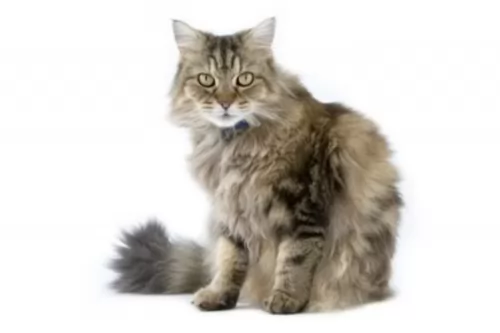 The beautiful Ragamuffin cat is a domestic feline that was established as a separate breed in 1994. It is a variant of the Ragdoll cat.
The beautiful Ragamuffin cat is a domestic feline that was established as a separate breed in 1994. It is a variant of the Ragdoll cat.
It was during the 1960s that a regular long-haired cat that was also white and non-pedigreed produced different litters of kittens, one of which was an unusually docile litter of kittens.
The history of the RagaMuffin can in fact be traced back to the founder of the Ragdoll cat breed, Ann Baker. Breeders working with Ann decided to create their own breed, the Ragamuffin, in 1994. It is a fairly new breed and the Ragamuffin has inherited quite a lot of the Ragdoll cat’s qualities. It arrived in the UK in 2009.
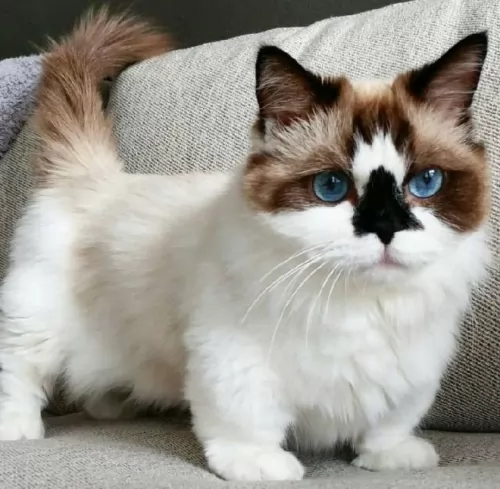 The Munchkin is a small to medium-sized, muscular cat with a thick coat that comes in all colors and patterns. In fact, color, pattern, and coat length will vary.
The Munchkin is a small to medium-sized, muscular cat with a thick coat that comes in all colors and patterns. In fact, color, pattern, and coat length will vary.
There is also a long-haired variety. It usually weighs between 3 and 4kg. It has short, stubby little legs and a torso that hangs fairly low to the ground. The cat’s back legs are somewhat longer than the front legs. The legs of these cats can be slightly bowed. The eyes can be any color.
The Munchkin is such a social, outgoing cat that just loves being petted and pampered by his human family. He is sociable and friendly as well as intelligent and is easy to train. While he is an amicable cat and can get on well with everyone in the family, it isn’t a good idea to have such a cat as a playmate for children as they can become injured.
An interesting feature with this cat is the way he doesn’t really sit like other cats but has a way of sitting up on his legs, much like a rabbit.
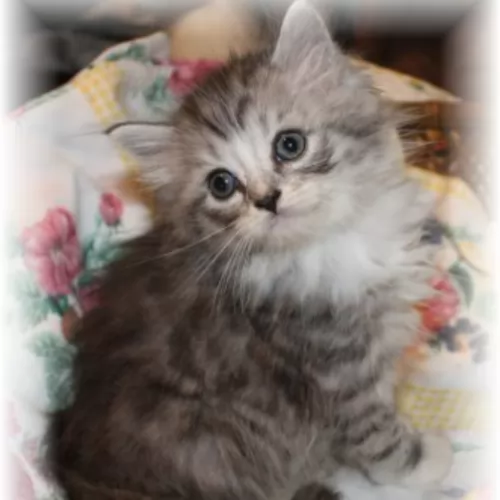 Ragamuffins are large, muscular cats and some of the larger ones can weigh up to 9kg.
Ragamuffins are large, muscular cats and some of the larger ones can weigh up to 9kg.
The chest of the cat is broad, he has a broad head and a well-plumed tail. These medium- to semi-longhaired cats have a thick, plush, silky coat with a ruff around the neck.
The coat is available in a number of colors and patterns, but popular colors are tabby with white, brown, blue and tortoiseshell. The nose of the Ragamuffin is shorter than that of the Ragdoll and the eyes are walnut-shaped. The eyes can be green, blue, or gold.
The Ragamuffin cat is a little bit more energetic than the Ragdoll and is a loving, loyal member of his human family. He is a large but docile cat. These cats are amicable, playful and also intelligent.
Many people train them to walk easily on a leash. They make great companions for single people or families.
Calm and unruffled, he makes the perfect family pet. People are always ready to make a fuss of them because of their beauty and they are always ready to lap up the attention. In fact, these big cats are so fond of attention from their owners that they don’t like being left alone for long periods of time.
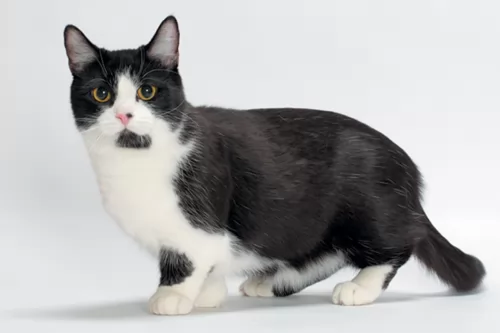 The Munchkin may be short and stock but he is just as active and playful as any other cat. When you have him in your home, you'll discover that his short little legs don't stop him from trying out everything other cats do.
The Munchkin may be short and stock but he is just as active and playful as any other cat. When you have him in your home, you'll discover that his short little legs don't stop him from trying out everything other cats do.
He is ready to show you what he's made of. He is a confident, social cat and is friendly, intelligent, and loving towards his human family. He makes a devoted companion and he will get along with other cats in the family as well as dogs.
He may be a bit odd to look at but if you want an excellent companion, the Munchkin is well worth your consideration.
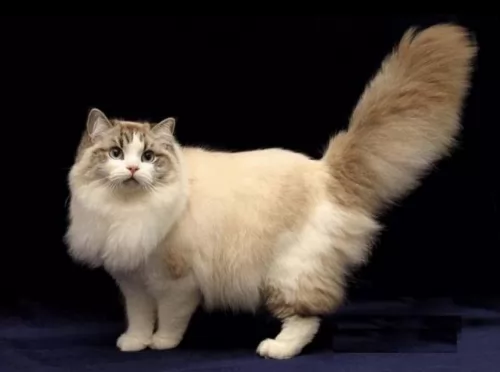 Your RagaMuffin promises to make you a splendid pet. He is such an amicable cat, being social and friendly with his human family.
Your RagaMuffin promises to make you a splendid pet. He is such an amicable cat, being social and friendly with his human family.
He also gets along with your visitors and any other pets you have in the house. Children love his playful, easy-going nature.
Having a Ragamuffin cat in your home is such a pleasure and this large cat is willing to go out of his way to be the perfect pet and companion for you.
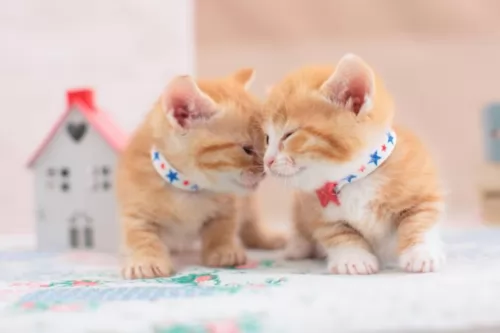 Because this is a fairly new breed, it's still not too clear about its health. It was once thought that the Munchkin cat could develop spinal problems because of its short legs.
Because this is a fairly new breed, it's still not too clear about its health. It was once thought that the Munchkin cat could develop spinal problems because of its short legs.
It was in 1995 that some breeders had some of their older Munchkins x-rayed to see if there were any signs of joint or bone problems, but none were found.
The Munchkin cat should also be vaccinated as a kitten and be treated for parasites. To ensure the good health of your sweet little Munchkin cat, give him the best diet possible.
In fact, if you take good care of your Munchkin and you make sure to get all the necessary vaccines for him and get him to the vet when he shows signs of illness, your munchkin can reach 12 to 15 years of age.
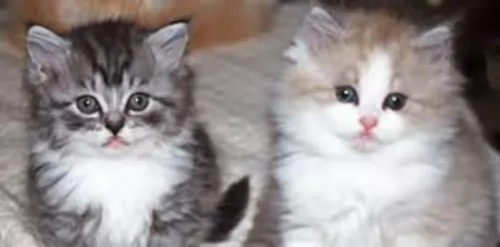 Ragamuffins are healthy cats with no known inherited diseases, but as with all cats you want to know something of the diseases that can plague cats.
Ragamuffins are healthy cats with no known inherited diseases, but as with all cats you want to know something of the diseases that can plague cats.
You’ll want to check that your Ragamuffin has been tested for Hypertrophic cardiomyopathy as well as Polycystic kidney disease.
This is a commonly diagnosed cardiac disease in cats. Feline Hypertrophic Cardiomyopathy causes the muscular walls of a cat's heart to thicken. The heart can no longer work sufficiently. It seems as though genetics plays a role as there are some cats that seem to battle with this disease more than others.
If you catch the disease early enough, the vet can devise a treatment plan to improve the cat’s quality of life.
Although you find this disease more frequently in Persian cats, this inherited disorder can be found in other cat breeds too. Liquid-filled sacs develop in the kidneys, growing in size and taking over kidney tissue which ultimately leads to kidney failure. Your cat will have nausea, vomiting, weight loss, and lethargy, and your cat will have to get to the vet.
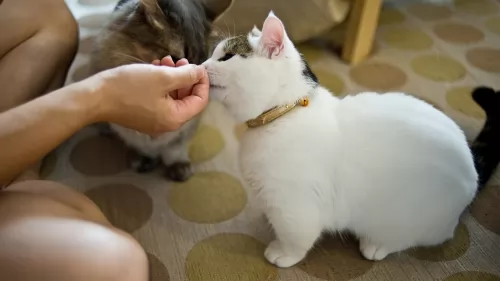 Every cat is unique and the Munchkin is a unique cat, This little cat is a carnivore just like any other cat and his diet must be made up mostly of protein.
Every cat is unique and the Munchkin is a unique cat, This little cat is a carnivore just like any other cat and his diet must be made up mostly of protein.
Speak to your vet about the best food for your Munchkin because a kitten will require a different diet to a senior Munchkin. Also, you don’t want your Munchkin to put on too much weight as this can be detrimental to his joints.
Not only that, being overweight comes with all kinds of health issues. The manufacturers of commercially manufactured cat foods have made sure that they have brought out foods for every stage of a cat's life and age.
Munchkin cats will need to have their fur brushed at least once a week. Trim the claws at the same time.
Provide your sweet little Munchkin with a litter box and keep the litter box immaculately clean, removing the feces every single day.
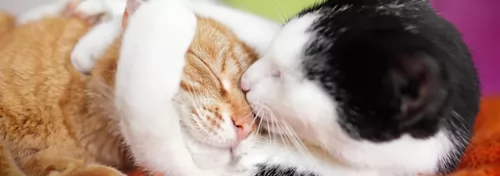 The Ragamuffin's longish coat will require some brushing at least once a week to keep it soft and silky.
The Ragamuffin's longish coat will require some brushing at least once a week to keep it soft and silky.
These are big cats so you will need to provide him with an adequate diet. He is a carnivore and will therefore require meat.
Kittens will eat 4 meals a day while the adult Ragamuffin can have 2 bowls of food. Cats can sometimes be fussy eaters so you want to be sure to give him what he likes from the wet and dry cat goods you get.
The better quality food he eats, the healthier he will be. Your Ragamuffin's dietary needs will also depend on his age.
He should never be without a constant supply of fresh, cool water.
If you have any questions about how to look after your Ragamuffin in the best possible way, speak to your local vet.